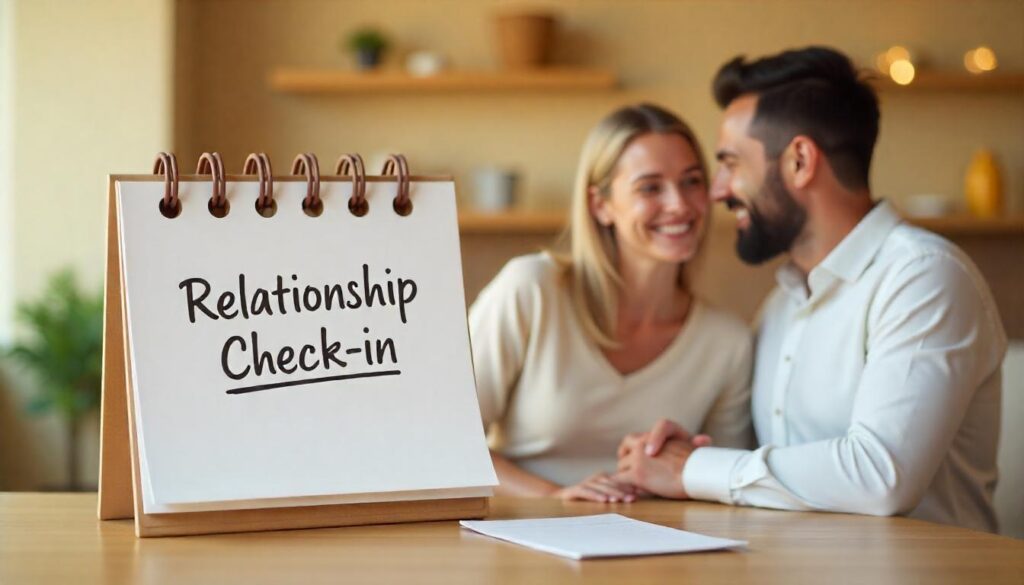Introduction
Effective communication is the backbone of any healthy relationship. When partners can share their thoughts and feelings openly, it fosters trust and intimacy. But how do you improve communication in a relationship? In this post, we’ll explore various strategies to enhance the way you and your partner connect, ensuring that both of you feel heard and understood.

Understanding Communication Styles
The first step in how to improve communication in a relationship is to understand the different communication styles that people typically exhibit. These styles can be categorized into four main types: assertive, passive, aggressive, and passive-aggressive.
- Assertive Communication: This is the healthiest style, where individuals express their feelings and needs openly while respecting others. It promotes healthy dialogue and problem-solving.
- Passive Communication: Here, individuals avoid expressing their thoughts, which can lead to misunderstandings and resentment. This often results in feelings of being unappreciated.
- Aggressive Communication: This style often involves dominating conversations and dismissing others’ opinions, which can create conflict and distance between partners.
- Passive-Aggressive Communication: This involves expressing negative feelings indirectly, often through sarcasm or backhanded comments. It can create confusion and frustration in relationships.
Recognizing your communication style and that of your partner can significantly improve interactions and foster a more respectful dialogue. It’s essential to discuss these styles openly to understand how they affect your communication.

Active Listening Techniques
Another critical aspect of how to improve communication in a relationship is mastering the art of active listening. This means not just hearing your partner’s words but truly understanding their message. Here are some tips for practicing active listening:
- Maintain Eye Contact: Show your partner that you are engaged and present in the conversation. This small gesture can convey your interest and care.
- Summarize What You Hear: Repeat back what your partner has said to ensure you’ve understood them correctly. This also shows that you value their perspective.
- Avoid Interrupting: Let your partner finish their thoughts before responding. Interrupting can make them feel dismissed and lead to frustration.
By incorporating these techniques, you’ll create a more supportive environment for discussions, which is essential for effective communication. Active listening helps both partners feel valued and understood, strengthening the emotional bond.

Expressing Yourself Clearly
When it comes to how to improve communication in a relationship, being clear about your own feelings is just as important as listening. One effective method is to use “I” statements. Instead of saying, “You never listen to me,” try, “I feel unheard when my thoughts are interrupted.” This subtle shift focuses on your feelings rather than blaming your partner, reducing defensiveness and promoting open dialogue.
Expressing yourself clearly also means being specific about your feelings and needs. Instead of making vague statements like “I’m upset,” try to articulate exactly what is bothering you. For example, “I feel frustrated when plans change last minute because it disrupts my schedule.” This clarity helps your partner understand your perspective and respond appropriately.

Nonverbal Communication
Did you know that much of communication is nonverbal? Body language, facial expressions, and tone of voice all play a significant role in how messages are received. To enhance communication in your relationship:
- Be Aware of Your Body Language: Open and relaxed posture invites conversation. Avoid crossing your arms or looking away, as these can signal defensiveness.
- Pay Attention to Tone: Sometimes, it’s not just what you say, but how you say it that matters. A warm tone can foster connection, while a harsh tone can create barriers.
- Watch for Cues: Be attentive to your partner’s nonverbal signals; they can often indicate how they truly feel about the conversation. If they seem tense or disinterested, it might be worth pausing to check in.
By being mindful of your nonverbal communication, you can convey your feelings more effectively and avoid misunderstandings.

Creating a Safe Space for Conversations
A critical aspect of how to improve communication in a relationship is creating a safe space for open dialogue. This means finding a comfortable time and place for discussions where both partners feel relaxed. Here are a few tips:
- Choose the Right Time: Avoid discussing serious matters when either of you is stressed or preoccupied. Instead, find a quiet moment when both partners can focus on the conversation.
- Encourage Honesty Without Judgment: Foster an environment where both partners feel safe to express their thoughts and feelings without fear of criticism. Let your partner know that their feelings are valid and important.
Creating this safe space encourages honesty and vulnerability, allowing deeper connections to flourish.

Handling Conflict Constructively
Conflict is a natural part of any relationship, but how you handle it can make all the difference. Learning how to improve communication in a relationship during conflict involves several strategies:
- Stay Calm: Take a deep breath and approach the conversation with a level head. If emotions are running high, it might be best to take a break and revisit the issue later.
- Focus on the Issue: Avoid bringing up past grievances; stick to the current issue at hand. This helps prevent the conversation from escalating into a full-blown argument.
- Seek Compromise: Be willing to find a solution that satisfies both partners. This may require creativity and flexibility from both sides.
By handling conflict constructively, you can strengthen your relationship rather than allow disagreements to create distance.

Regular Check-ins
One effective strategy for how to improve communication in a relationship is to schedule regular check-ins. These can be short, informal chats where you discuss feelings, concerns, and relationship goals. Regular communication helps prevent misunderstandings and ensures that both partners remain on the same page.
Consider setting aside a specific time each week for these check-ins. This could be during a walk, over dinner, or while relaxing on the couch. Use this time to share what’s on your mind, celebrate successes, and address any concerns before they escalate.

Using Technology Wisely
In today’s digital age, technology can be a double-edged sword in relationships. While it offers convenient ways to communicate, it can also lead to misunderstandings. Here are some tips for using technology effectively:
- Be Clear in Text: Avoid vague messages that can be easily misinterpreted. If you’re conveying something important, consider a phone call or face-to-face conversation instead.
- Know When to Talk Face-to-Face: Some conversations are best had in person rather than over text. Nonverbal cues are vital for understanding tone and emotion.
By being mindful of how you use technology, you can enhance communication in your relationship rather than hinder it.

Seeking Professional Help
If you find that communication issues persist, consider seeking professional help. Couples therapy can be a valuable resource for couples struggling with communication. A trained therapist can provide tools and strategies tailored to your specific situation, helping both partners learn how to express themselves more effectively.
Therapy can also help address underlying issues that may be affecting your communication, such as past traumas or unresolved conflicts.

Understanding Each Other’s Background
Everyone comes into a relationship with their own background and experiences, which can influence communication styles. Understanding each other’s history is key to improving communication. This can involve discussing past relationships, family dynamics, and cultural influences. By acknowledging these factors, you can create a more compassionate understanding of each other.
Taking the time to share and discuss your backgrounds can foster deeper empathy and connection. It can also help clarify why you may respond to certain situations in specific ways.

Building Empathy
Empathy is crucial for effective communication. By putting yourself in your partner’s shoes, you can better understand their feelings and perspective. Here are some activities to foster empathy:
- Share Personal Stories: Open up about experiences that shaped you, and encourage your partner to do the same. This creates a deeper emotional connection.
- Practice Perspective-Taking: During discussions, try to articulate how your partner might feel in their position. This can help diffuse tension and build understanding.
Building empathy can greatly enhance communication and strengthen your bond. The more you understand each other’s feelings and experiences, the more connected you’ll feel.
Conclusion
Effective communication is the lifeblood of any relationship. By understanding different communication styles, practicing active listening, and expressing yourself clearly, you can create a foundation of trust and openness with your partner. Remember to be mindful of nonverbal cues, handle conflicts constructively, and create a safe space for discussions. Regular check-ins and thoughtful use of technology can further enhance your connection. Don’t forget the importance of empathy; by understanding each other’s backgrounds and feelings, you deepen your emotional bond.
Improving communication in your relationship is a journey that requires commitment and effort from both partners. So why not take the first step today? Reflect on your communication style and have an open conversation with your partner about how you can better connect with one another. Share this blog post with friends who might benefit from these insights, and join the discussion in the comments below. Your relationship deserves this investment—let’s nurture it together!







